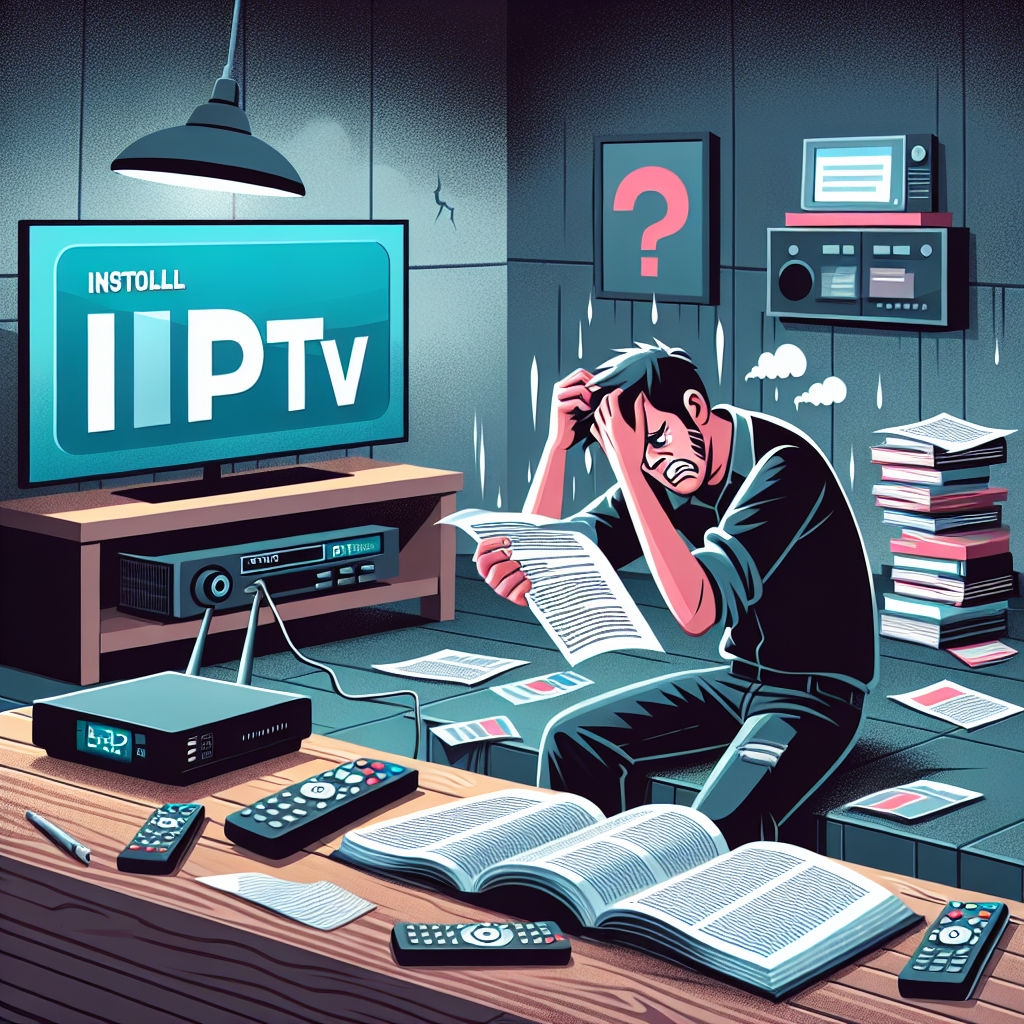Ad Details
-
Ad ID: 3178
-
Added: December 30, 2024
-
Views: 73
Description
In the modern era of digital entertainment, Internet Protocol Television (IPTV) has emerged as a popular alternative to traditional cable services. IPTV offers users the flexibility to stream live TV, movies, and on-demand content across various platforms and devices. However, ensuring compatibility between your device and IPTV applications can often be daunting. By understanding the key factors that influence this compatibility, recognizing common device limitations, and employing effective troubleshooting strategies, users can enhance their viewing experience. This article delves into these critical areas to provide a comprehensive overview of IPTV app compatibility issues.
Exploring the Key Factors Influencing IPTV App Compatibility
Several factors play a pivotal role in determining whether an IPTV app will function seamlessly on a given device. First and foremost is the operating system. Different devices run on various platforms, such as Android, iOS, Windows, or proprietary systems like Smart TV OS. Each operating system has unique requirements that affect how applications are developed and optimized. Thus, users must ensure that their IPTV app is compatible with their device’s operating system to avoid performance issues.
Another significant factor is hardware specifications. Devices with higher processing power, more RAM, and advanced graphics capabilities are better suited to handle bandwidth-intensive IPTV applications. For instance, older devices might struggle with buffering and lagging while streaming high-definition content due to inadequate hardware. Users should check the minimum requirements specified by the IPTV app developers to ensure that their hardware meets these benchmarks.
Network conditions also play a crucial role in IPTV compatibility. A stable and fast internet connection is essential for streaming high-quality video content without interruptions. Factors such as bandwidth limitations, router configurations, and network congestion can affect performance. Therefore, users should consider their internet speed and stability when assessing the compatibility of their devices with IPTV apps. A reliable network setup can significantly enhance the overall streaming experience.
Common Device Limitations Affecting IPTV Performance
Device limitations can significantly impact the performance of IPTV applications. First, many older devices may not support newer IPTV app versions due to outdated operating systems or insufficient hardware capabilities. This can lead to frequent crashes, slow loading times, and a lack of essential features. Users with legacy devices may find it necessary to upgrade their hardware to enjoy the full benefits of modern IPTV applications.
In addition to hardware limitations, storage capacity can also affect compatibility and performance. Some IPTV apps require substantial storage space for caching data, while others may offer features that allow users to record live TV. Devices with limited storage may struggle to accommodate these requirements, leading to sluggish performance or even failure to install the app altogether. Users must ensure they have enough available storage to support the app’s requirements.
Finally, the availability of specific applications on various devices can also pose a challenge. While popular IPTV apps may be widely available on most platforms, some niche services might only be compatible with select devices. For instance, an app may be designed exclusively for Android devices and might not be available for iOS or Smart TVs. Users should verify the app’s compatibility with their specific device before making any commitments to a particular IPTV service.
Troubleshooting Tips for Seamless IPTV App Integration
When users encounter compatibility issues with their IPTV apps, several troubleshooting tips can help facilitate a smoother integration. First, ensuring that the device’s operating system and all applications, including the IPTV app, are up to date is essential. Regular updates often include patches and performance enhancements that can resolve compatibility issues. Users should check for updates regularly to keep their devices and apps running smoothly.
Another effective strategy is to clear the app’s cache and data. Over time, cached data can accumulate and cause applications to slow down or behave erratically. Users can navigate to their device’s settings and clear the cache or data associated with the IPTV app. This action can refresh the app and improve its functionality, potentially resolving any issues stemming from outdated or corrupted data.
Lastly, users should consider resetting their network settings if they continue to experience issues. A simple restart of the device or router can also help to refresh the connection and improve streaming quality. If problems persist, users may want to consult their IPTV service provider for further assistance, as they may offer additional tips or insights specific to their service.
Understanding IPTV app compatibility issues is crucial for optimizing your streaming experience. By exploring the key factors that influence compatibility, recognizing common device limitations, and employing effective troubleshooting strategies, users can mitigate potential challenges. As IPTV continues to gain popularity, being informed about these aspects will empower users to make the most of their digital entertainment options, ensuring seamless access to their favorite content. With the right knowledge and tools, navigating the intricate world of IPTV becomes a more manageable and enjoyable task.






